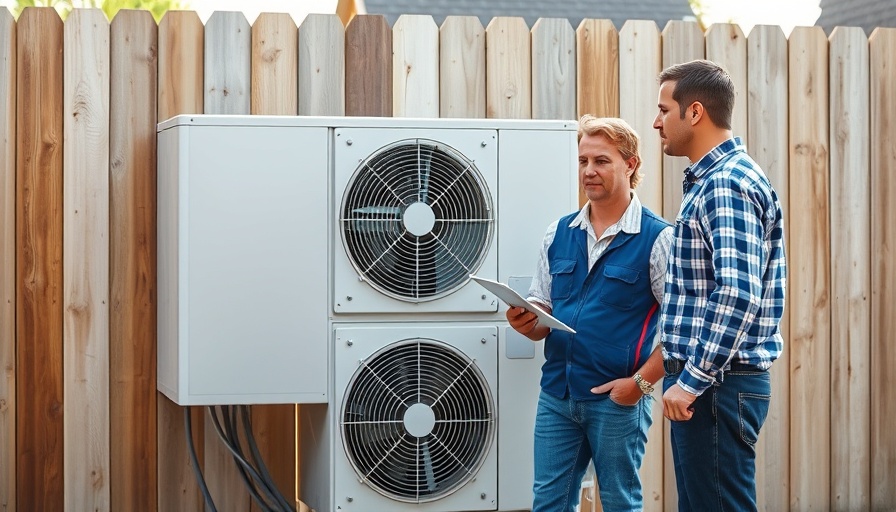
Understanding BTUs: The Core of HVAC Performance
When it comes to heating and cooling systems, understanding British Thermal Units (BTUs) is essential for homeowners, property managers, and small business owners. BTUs measure the amount of energy required to raise the temperature of one pound of water by one degree Fahrenheit. This unit helps gauge the efficiency and capability of HVAC systems. Rob Falke, a respected educator in the HVAC field, has communicated that grasping the concept of BTUs is pivotal for making informed choices about HVAC installations and maintenance.
The Role of Energy Efficiency in HVAC
Rob Falke also emphasizes the importance of energy efficiency when selecting HVAC systems. With rising energy costs, choosing energy-efficient units can lead to significant savings over time. This not only benefits homeowners' wallets but also contributes positively to the environment. Systems boasting higher seasonal energy efficiency ratio (SEER) and annual fuel utilization efficiency (AFUE) ratings are advantageous. Brands like Lennox and Trane are well-regarded for their innovative, energy-efficient offerings, making them stand out among the best HVAC systems on the market today.
Cost-Benefit Analysis of HVAC Maintenance
Another vital lesson from Falke is the significance of understanding maintenance costs in correlation with performance. Regular HVAC maintenance prolongs equipment lifespan, smoothens operation, and can prevent costly emergency repairs. Homeowners often wonder, "how much does hvac maintenance take"? Investing in routine check-ups from reputable HVAC professionals can ultimately save money in the long run, especially as families make budgeting decisions for heating and cooling during seasonal changes. Property managers and small business owners can especially benefit from these insights, as being proactive can lead to reliable performance during peak demand times.
Making Smart Investment Decisions for HVAC
To make wise investment choices, knowledge is key. Homeowners and property managers should stay informed about available rebates on air conditioners, as many energy-efficient models qualify for incentives that can alleviate upfront costs. Additionally, understanding what constitutes a 'good' HVAC system and engaging with local contractors to acquire HVAC leads can facilitate the process of finding the right unit. Utilizing these resources will empower individuals to be more engaged and effective consumers.
Conclusion: Ready Your HVAC System for Seasonal Changes
In conclusion, the lessons taught by Rob Falke regarding BTUs, energy efficiency, and maintenance costs are invaluable for anyone dealing with HVAC systems. By understanding these concepts, homeowners, property managers, and small business owners can ensure they make knowledgeable decisions that marry performance with financial sustainability. As we transition between seasons, take a moment to assess your heating and cooling units and explore the latest HVAC technology and efficiency programs. Your wallet and the environment will thank you!
 Add Row
Add Row  Add
Add 




Write A Comment